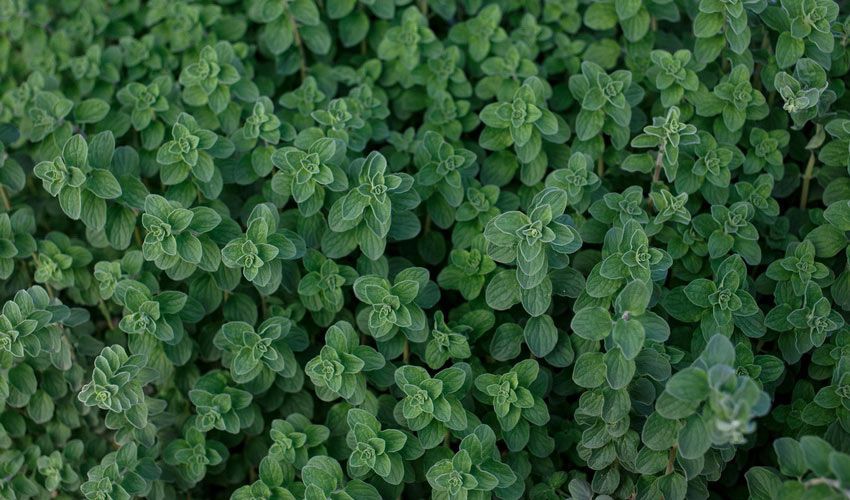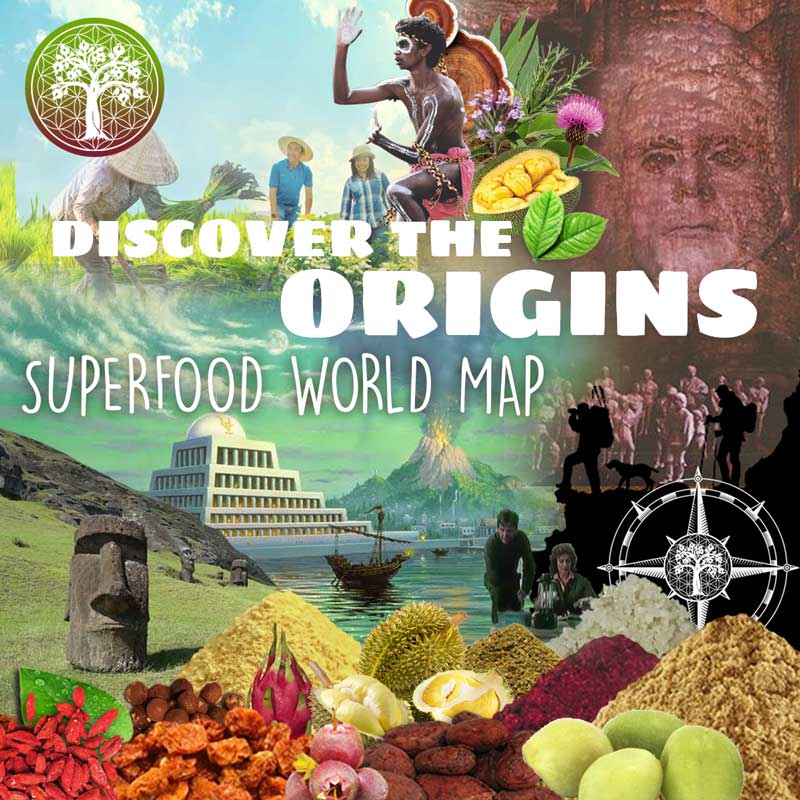Supercharged Spices: Unleashing the Power of Nature's Antibiotics
Forget Big Pharma! Nature has got your back when it comes to fighting those pesky infections. Pharmaceutical antibiotics may have saved countless lives, but they can't handle everything. Viruses and fungi, you just sit tight and enjoy the party because antibiotics won't be crashing it anytime soon. And let's not forget about the over-prescription dilemma. The doctors are handing out antibiotics like candy on Halloween and that is a recipe for disaster. We're playing a dangerous game with antibiotic resistance here. Those little bacteria buddies are getting smarter and laughing in the face of our once-mighty antibiotics. Infections are getting worse while we're left scratching our heads wondering why.
But hold up, before you panic and raid your local pharmacy for a lifetime supply of hand sanitiser, allow me to introduce you to nature's own little warriors - natural antibiotics. While they may not be the superheroes of severe infections, they can certainly put up a decent fight alongside your doctor's prescription. So grab your notepad and prepare to jot down these 15 natural antibiotics. Mother Nature has your back and she's come to save the day.

Honey
Throughout the ages, this golden elixir has been hailed as a miracle worker in the realm of medicine. With its antimicrobial and wound-healing properties, Honey has become the go-to choice for herbalists who prefer nature's remedies over those that come in pill form. Even in the modern era, Honey continues to prove itself as one of nature's most impressive antibiotics, while also doubling as an anti-inflammatory and antiseptic. In the year 2014, a group of scientists presented a study to the American Chemical Society, revealing Honey's ability to duke it out with infections on multiple fronts. This Honey powerhouse makes it incredibly challenging for harmful bacteria to develop resistance. You see, Honey isn't just sweet in taste as it's also sweet in combatting those nasty bugs. Thanks to its composition, which includes sugar, hydrogen peroxide, polyphenols, and a high level of acidity, Honey packs quite the punch. Now, let's talk about the magical enzyme production of hydrogen peroxide. This is what gives most Honey its antimicrobial powers. However, there are some Honey types, like Manuka Honey, that are non-peroxide. And guess what? They still know how to get the job done! Researchers have discovered that these non-peroxide Honey variations also possess impressive antibacterial effects. You might be wondering, how? Well, it all comes down to Honey's low pH level and its sugary goodness. These delightful characteristics make it incredibly difficult for microbial growth to thrive. Take that, germs!
There's more! When put to the test in the laboratory, medical grade Honey has shown its ability to tackle even the most stubborn antibiotic-resistant bacteria. That's some serious superhero status right there. However, it's crucial to note that not all Honey is created equal. Just like people, Honey comes in different shapes and sizes, each with its own unique set of qualities and benefits. So, when it comes to Honey, it's important to choose wisely. In conclusion, Honey has been rocking the world of medicine for centuries. Its antimicrobial and wound-healing properties continue to astonish herbalists and scientists alike. With its sugar content, hydrogen peroxide production, and a pH level that gives germs a run for their money, Honey is a force to be reckoned with. So, embrace the sweet side of nature and remember, not all Honey is created equal.
Garlic
If you're a proud member of the food lover clan, then you've probably worshipped the pungent little bulb known as Garlic. But here's some scientific news to add to your Garlic-devotion: it's not just a delicious culinary delight as it's also a natural antibiotic with antiviral and antifungal powers. Way back in 1999, some science-y folks discovered that Garlic contains a substance called allicins. These allicins, my friend, are sulphur compounds that act as natural antibiotics. Fast forward to 2011, and another study came along to confirm this Garlic magic. They even used Garlic in the fancy form of an extract, just to make it extra official! Garlic isn't just a germ-slayer. It's also a treasure trove of vitamins, minerals, and nutrients that your body craves. Sure, it's low in calories, but it's rocking the Manganese, Vitamin B6, and Vitamin C dance floors. And that's not all! It's got iron, Vitamin B1, phosphorus, potassium, and copper shining on the nutritional runway as well. Oh, and did you know that garlic is also a certified parasite assassin? Yep, you read that right. For those vicious intestinal parasites, just munch on 2 or 3 raw cloves of Garlic on an empty stomach every day. Don't forget to sprinkle some Garlic in your cooking too, because flavoursome food and parasite cleansing go hand in hand.
If you're feeling particularly ambitious about Garlic's disease-fighting potential, you can even take Garlic supplements. But hey, remember to consult a doctor before you go all gung-ho on the Garlic supplement spree. Safety first, folks! We don't want any unexpected internal bleeding ruining our Garlic party. And if you happen to be on blood-thinning medication, definitely have a chat with your doctor. Garlic might just become the life of the party and amplify the effects of your medication. We certainly don't want any unexpected surprises on that front either. So there you have it, Garlic lovers. Rejoice in the knowledge that your beloved bulb isn't just a culinary superstar, but also a knight in shining armour against pesky germs, parasites, and possibly even vampires (though the science on that last one is still pending).

Turmeric
Turmeric has been rocking the world of natural health for centuries. This gloriously yellow spice, notorious for its role in curries, is more than just a pretty face. Turns out, it's packing some serious antibiotic and anti-inflammatory punch. In a study from 2009, the main maverick in Turmeric, Curcumin, showed some serious promise against those nasty stomach ulcers caused by Helicobacter pylori. If that wasn't enough, Curcumin also brings some anti-inflammatory game and plays the role of a powerful antioxidant. The only drawback is that Turmeric only contains a measly 3% of this Curcumin superstar. It's like having Harry Potter's invisibility cloak but without the magical powers. So, chomping down on a plateful of Turmeric-spiced goodness won't cut it if you're after the full benefits. That's where supplements swoop in to save the day. However, this tricky little Curcumin isn't the best at getting absorbed into our bloodstream. It needs a little help from its buddy, black pepper. Picture them like Batman and Robin, fighting crime together.
To enhance the absorption of Curcumin, throw in a couple of whole peppercorns with your daily Curcumin supplement. They'll make sure this sneaky spice gets where it needs to go. But hey, if swallowing whole peppercorns isn't your jam, there's another way to get your Turmeric fix. Mix one tablespoon of Turmeric powder with six tablespoons of raw, organic honey (yes, honey, because everything is better with honey) and store it in a fancy airtight jar. Then, scoop out half a teaspoon of this mix of wonders twice a day. If you want to go all in and take supplements, aim for 400 to 600 mg of Turmeric twice daily. But, always remember to have a little chat with your doctor before diving into the land of supplements for the first time. They'll be your wise Yoda, guiding you on this health journey. Learn more about Organic Turmeric Powder here.
Cinnamon
This aromatic delight has graced our taste buds and nostrils for millennia. We have evidence, my dear spice enthusiasts, that even those clever Ancient Egyptians were using this gem as a perfuming agent during their embalming rituals, way back in 2,000 BCE. Can you imagine the divine scent wafting through those pyramids? But hey, there's more! It seems this aromatic superstar also made quite the impression in the holy texts. Yes, people, the Bible's Old Testament mentions Cinnamon as a key ingredient in anointing oil. That's right! Cinnamon had a VIP pass to divine creations. It was the Beyoncé of spices, if you will. But let us not forget the dramatic tale of the Arab traders who brought this enchanted delight to the waiting palates of Europe. Picture this: small quantities, so limited and precious, transforming Cinnamon into a status symbol fit for the knights and damsels of the Middle Ages. Oh, the envy of those lacking in this cinnamony goodness! Ah, but the plot thickens as the Arab traders, sly as foxes, kept the source of their Cinnamon under lock and key. Like a mythical secret, whispered tales of its origin filled every tavern on European soil. Was it a rare flower, only blooming for a single moon, or perhaps a magical concoction brewed by mystical creatures? The truth eluded the eager adventurers.
Alas, the suspense could not last forever. The year was 1518. Enter the courageous Portuguese traders. They voyaged far and wide, fuelled not only by their desire for wealth and glory but also that undying curiosity to uncover the mysteries of the spice world. And what do they find? Well, they found Cinnamon in a land now known as (Ceylon) Sri Lanka. Gold, silver, and all the glory be to the Portuguese for bringing the truth of Cinnamon's origin to light. By the dawning of the 1800s, Cinnamon's allure had diminished. It was no longer that elusive rarity, oh no. The spice had spread its wings, making its way to other corners of the globe. Cultivation had become a global affair, and Cinnamon was no longer exclusively whispered about in hallowed halls. So there you have it, the epic voyage of Cinnamon, from ancient embalming rituals to biblical texts, from the shrouded cradle of Arab traders to the brave discoveries of Portuguese sailors. A journey that turned this mere spice into a legend, forever remembered as a token of status and the strong preserver of meats. Let us savour the sweetness and aroma, for Cinnamon's tale is one to be treasured.
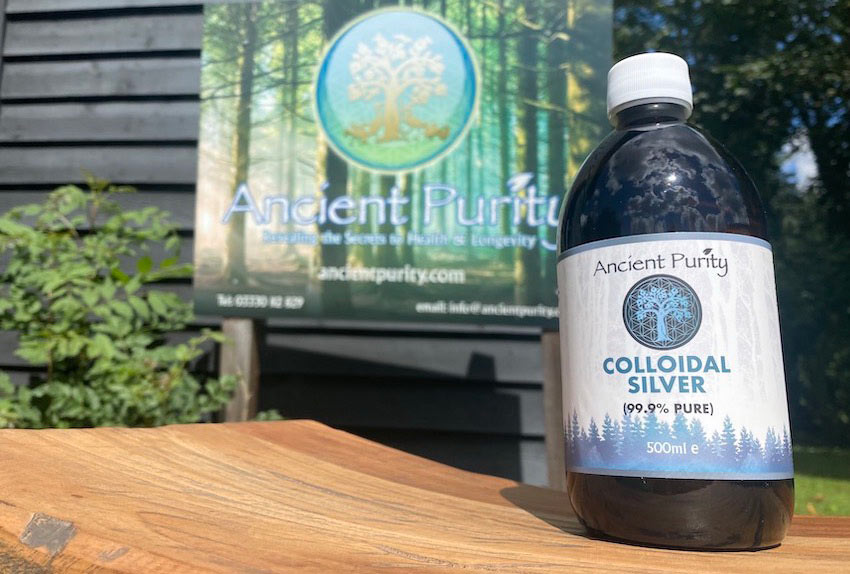
Colloidal Silver
Colloidal Silver is like a little army of pure silver particles swimming around in water or some other liquid. People make some bold claims about this stuff! Some say it can zap a cold right out of your system in no time. Others go as far as saying it's the miracle cure for certain chronic ailments. They even use it as a super-powered germ-killing weapon, either by chugging it down or slapping it on wounds. Back in the day, a guy named Alfred Searle started a fancy pharmaceutical company and discovered that Colloidal Silver could wipe out all sorts of nasty pathogens, even the really deadly ones. He claimed it could do the job without harming the person. Fast forward to today, and scientists have found that this silver marvel can take down antibiotic-resistant bacteria like MRSA, bird flu, and SARS. Talk about impressive! But hold on a minute, because not everyone is jumping on the Colloidal Silver bandwagon. Some folks warn against taking it orally, saying that over time it could turn your skin and mucous membranes a not-so-glamorous shade of grey. They call it agyria, which doesn't sound too inviting, but fortunately, it's not dangerous – just aesthetically unpleasing. And hey, here's another caution: apparently, Colloidal Silver can mess with how your body absorbs certain drugs, including antibiotics and those meant for thyroid problems. So, if you're popping pills, maybe avoid the silver liquid cocktail.
Now, if you're a momma-to-be or a nursing superhero, pay attention. There haven't been any studies proving the safety of colloidal silver for you and your little one, so it might be best to steer clear during those special times. However, using it topically is a different story. Slathering on some silver ointment can work wonders for healing skin wounds, taming acne, and soothing new-borns' conjunctivitis. Thanks to its antimicrobial powers, it's like giving your skin a superhero cape! So there you have it. Colloidal Silver is quite the character. It's making some grand claims, but there are also a few sceptical voices. Just remember, when it comes to this silver spectacle, tread cautiously and always consult with the wise ones in the medical realm before diving in. Stay safe and silver-tastic! Learn More About Colloidal Silver Here.
Grapefruit Seed Extract
Ladies and gents, let me introduce you to the grapefruit - a citrus tree that hails from subtropical lands and bears fruit with a slightly bitter taste. This hybrid fruit was born by accident in Barbados when two species, sweet orange and pomelo, decided to get together and make sweet (bitter?) grapefruit love. And why is it called a grapefruit? That's because these bad boys grow in clusters that resemble grape bunches! Now, isn't that just dandy? We're about to take a trip down memory lane. Back in the late 1800s, a man named Kimball Atwood decided to shake things up in the American citrus industry. He founded the Atwood Grapefruit Company, and lo and behold, his grove became the largest grapefruit one in the world, producing a whopping 80,000 boxes of fruit each year! It was in this very same grove where the coveted pink grapefruit was first discovered in the early 1900s. Talk about changing the game! Now, there's more to this deliciously bitter fruit than meets the eye. Grapefruit Seed Extract, developed as an anti-parasitic, can fight off all sorts of bacterial, yeast, viral, fungal, and parasitic infections. And while grapefruits and grapefruit oil may help boost your immune system, reduce cellulite, and shed some pounds, Grapefruit Seed Extract brings a different set of benefits to the table.
Before you start popping those Grapefruit Seed Extract pills like candy, here's a word of caution: not all extracts are created equal. Some commercial brands contain icky substances like triclosan and benzethonium chloride that could be harmful to your body. So, make sure you're only using high-quality extracts and always, always read the ingredients before use. Okay, now that we got that out of the way, let's talk about the good stuff. When you're using pure, unadulterated Grapefruit Seed Extract, you're giving your body a fighting chance against all sorts of infectious microbes. From athlete's foot to Candida infections, earaches to diarrhoea, this extract has been known to kick butt! And don't even get me started on its impressive track record against strep infections, salmonella, flu, herpes, E. coli, Staphylococcus, parasites, and more. So, next time you're feeling under the weather, maybe give Grapefruit Seed Extract a shot. Your body might just thank you!
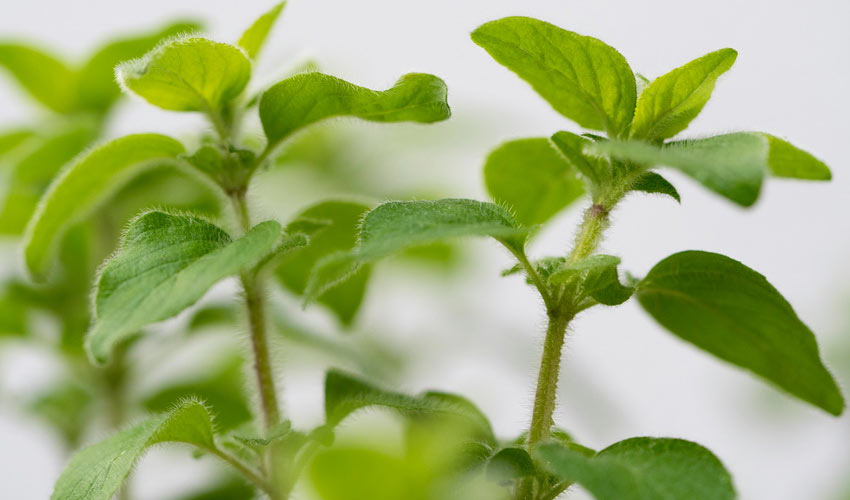
Oregano Oil
Alright, let’s dive into the world of Oregano. This fragrant herb, also known as oreganum, is like a global jetsetter. Sure, it's native to Europe, but you can find it growing all over this beautiful blue planet. The Romans and Greeks were hip to its medicinal powers way back when, and they even named it "joy of the mountain" in Greek. Can you imagine being so joyful that people start throwing Oregano crowns at you on your wedding day? Classic ancient times, am I right? Now, be aware that not all Oregano species are created equal. Only the oils from Origanum vulgare and Thymus capitatus have that real therapeutic value. Why? Well, because they're packing some serious punch in the form of phenols. These phenols are like natural superheroes fighting off free radicals with their powerful antioxidant abilities. Candida, staphylococcus, E. coli, campylobacter, salmonella, klebsiella, giardia, pseudomonas, listeria - you name it, Oregano takes them down! It's like having a tiny army of disease-fighting agents, all in one delicious herb.
Oh, here’s more! Oregano isn't just a one-trick pony. It's got a full-range of nutrients to offer, like vitamins A, C, and E, along with a whole bunch of minerals like calcium, magnesium, zinc, iron, potassium, manganese, copper, boron, and niacin. Talk about a nutritional powerhouse! But here's where things get really interesting. Oregano Oil is where the magic happens. This stuff is like a Swiss Army knife of natural remedies. Need something antibacterial? Boom, Oregano Oil has got your back. Got a pesky fungal infection? Oregano Oil will kick fungus butt. And don't even get me started on its antiviral skills - it's like a ninja sneaking up on those viral baddies. Now, let me drop some knowledge on you. If you're dealing with parasites or infections, grab a drop of Oregano Oil and mix it with some carrier oil like coconut oil. Pop that concoction under your tongue and let it work its magic. Just remember to rinse your mouth afterwards, unless you want to walk around with a delightful Oregano flavour all day long (which may or may not be a bad thing). Need sinus relief? Drop a few heavenly Oregano Oil drops into a pot of steaming water, cover yourself with a towel, and inhale that aromatic steam. Trust me! Your sinuses will thank you. Learn More About Oregano Essential Oil Here.
Cayenne Pepper
Are you ready for a hot and spicy trip to the world of cayenne pepper? Get ready to add some serious pizzazz to your plates with this ancient remedy that's been around for thousands of years, long before Instagram foodies were even a thing. That's right, this fiery little spice from the plant genus Capsicum has been used for its healing and antibiotic properties since ancient times - and now science is finally catching up to confirm what our ancestors already knew. Cayenne Peppers come from a shrub that's originally from South and Central America but now thrives in subtropical and tropical climates. These little red, orange or yellow pod-type fruits pack a nutritional punch, including vitamins C, B6, E, manganese, potassium, flavonoids, and antioxidants to fight off those pesky free radicals. Plus, they're low in calories, contain no cholesterol, and are loaded with vitamin A. Eat your heart out, kale!
But here's where things get really interesting. The Hunza people of Asia have been chowing down on Cayenne Peppers for centuries as a staple component of their diet. And get this - they're known to live well over a hundred years! Is it a coincidence? We, at Ancient Purity, think not. Plus, Cayenne Peppers are popping up everywhere these days, with health enthusiasts touting their benefits for everything from weight loss to detoxing. Now, maybe you're not ready to jump into a hot and heavy detox program just yet. No worries. You can easily incorporate Cayenne Peppers into your everyday diet by adding them fresh, dried, or in powder form to your dishes. Just make sure to choose the brightest, freshest raw chillies with healthy skin and stems, and store them in the fridge in a sealed container for up to a week. So, the next time you're feeling a little under the weather or just want to give your taste buds a kick in the pants, turn up the heat with some Cayenne Pepper. It's like a little burst of flavour and nutrition all in one colourful package. And who knows - maybe you'll be the next Hunza centenarian, living your best life and spicing it up well into your golden years.

Berries
Get ready to go Berry wild, because these little powerhouses of flavour aren't just tasty treats, they're also here to save the day when it comes to urinary tract infections and bladder problems. Who knew that something as delicious as blackberries, blueberries, and cranberries could be the heroes we've been waiting for? It's time to kiss those painful and uncomfortable infections goodbye! Let's start with the cranberry, the mighty warrior against urinary tract infections. The Natural Medicine Database did some digging and found that drinking cranberry juice is like having a secret weapon against those pesky E. coli bacteria. Turns out, the juice can prevent those buggers from sticking to your bladder walls and causing trouble. But hold on to your taste buds, because it's not just cranberry juice that's got the power. Blueberry juice is like its equally awesome sidekick, containing those immune-stimulating compounds and antioxidants that do the same job of keeping those infections at bay. Who needs a superhero cape when you've got a glass of juice? But hey wait, the berry party doesn't stop there! Get ready to meet the 15-year-old Irish boy wonder named Simon Meehan who discovered something mind-blowing about blackberries. Turns out, these sweet and tangy delights can form antibiotics that take down Staphylococcus aureus, also known as the scary MRSA bacterium that laughs in the face of pharmaceutical antibiotics. Take that, MRSA!
And if you thought berries were done being incredible, think again. Traditional healers in the Amazon forest have been using Brazilian pepper tree berries for ages, and boy, were they onto something amazing. These little berries are like the superheroes of the plant world, fighting off life-threatening infections like MRSA. With antibiotic resistance on the rise, this is seriously good news. In fact, a British government-commissioned report says that by 2050, antimicrobial resistance could kill a whopping 10 million people worldwide. Yikes! Now, here's where things get really fascinating. Researchers at Emory University discovered that these pepper tree berries work their magic in a totally different way from synthetic antibiotics. Instead of destroying bacteria, they're more like expert disarmers, preventing those bad boys from excreting toxins that damage our precious tissue. And here's the cherry on top: unlike pharmaceutical antibiotics, these berry heroes don't harm the good bacteria that keep our immune system in tip-top shape. It's like a total immunity power-up!
So, next time you're reaching for a handful of berries, remember that you're not just satisfying your taste buds, you're also giving your body a boost against UTIs and pesky infections. Who knew nature's little treats could pack such a punch? It's time to celebrate the berry revolution and let these gentle yet powerful fruits work their magic!
Eucalyptus
Time to dive into the fascinating world of Eucalyptus! These incredible trees and shrubs are like the rulers of Australia, with over 700 species to their name. But their influence doesn't stop there - they've also made their way to small pockets of New Guinea and Indonesia. Talk about spreading their leafy kingdom far and wide! Now, what's all the buzz about Eucalyptus Oil, you ask? Well, this magical elixir can do it all! It's like a multitasking superstar in the botanical world. Not only is it used in fuels and perfumes, but it also doubles as an insect repellent and an antimicrobial agent. Who knew nature could be so versatile? In a study that had scientists scratching their heads in amazement, it was discovered that the oil from the leaves of Eucalyptus globulus, also known as the OG of Eucalyptus, is a force to be reckoned with. It can take down both pesky gram-negative bacteria like E. coli and those stubborn gram-positive bacteria like Staphylococcus aureus. It's like the superhero of essential oils, saving the day against all sorts of microbial villains.
In addition, this oil doesn't just stop at bacteria - it's like an all-in-one warrior against other troublemakers too. It's been found to combat Mycobacterium tuberculosis, viruses, and even fungi like Candida. And as if that wasn't impressive enough, it also brings anti-inflammatory, antioxidant, analgesic, spasmolytic, and immune-stimulatory effects to the table. It's like a spa treatment for your body, straight from the Eucalyptus tree! And here's the breathable cherry on top: inhaling those sweet Eucalyptus Oil vapours can actually bring relief to respiratory problems like bronchitis, asthma, and chronic obstructive pulmonary disease. It's like a breath of fresh air, quite literally! So next time you're feeling a little under the weather, take a sniff of that Eucalyptus goodness.
Now, even though the people of Eucalyptus land have been using this stuff for ages, scientists are finally catching on to its incredible powers. Turns out, Eucalyptus Oil is safe to use and covers a wide spectrum of microbes. It's like Mother Nature's alternative to synthetic drugs and pharmaceuticals. In fact, back in the late 19th century, English hospitals were already using Eucalyptus Oil to clean urinary catheters. Talk about being ahead of their time! And just when you thought Eucalyptus couldn't get any cooler, Serbian researchers in 2016 found that combining a special type of Eucalyptus Oil with traditional antibiotics could lead to new strategies for tackling infections. It's like a botanical tag team, fighting off those nasty bugs and potentially reducing our reliance on synthetic antibiotics. Let's take a moment to appreciate the wonders of Eucalyptus. From its diverse species to its mighty oil, this botanical powerhouse is here to save the day, one bacteria-busting inhalation at a time. Cheers to you, Eucalyptus, for being a true hero of the plant kingdom!
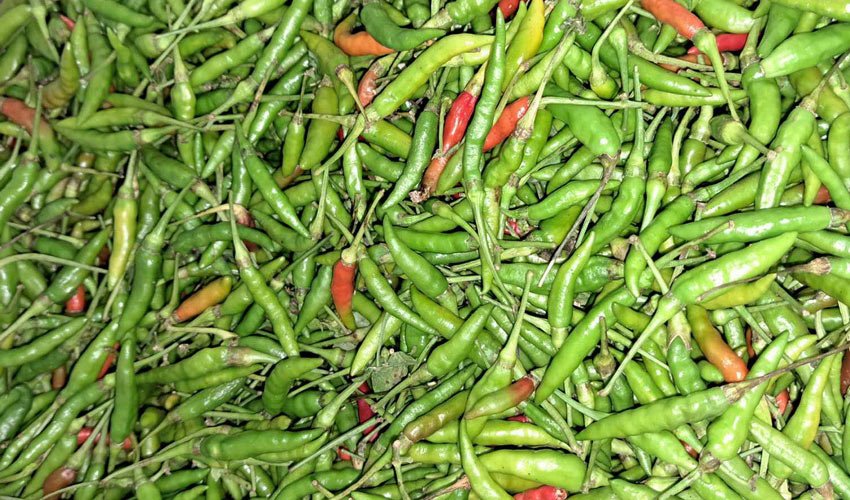
Chilli Peppers
Get ready to spice up your knowledge because we're about to dive into the fiery world of Chilli Peppers, my absolute favourite! We all know these little devils for the heat and flavour they bring to our favourite dishes, not to mention that pungent aroma that can make your nose hairs stand at attention. But hold on to your taste buds, because these hot wonders have more to offer than just a culinary adventure. Believe it or not, scientists are now exploring the anti-fungal and antimicrobial properties of Chilli Peppers. That's right as these bad boys are showing off their true superhero potential. Forget artificial preservatives - Chilli Pepper extracts might just be the next big thing in natural food preservation. So, not only will our taste buds thank us, but food scientists will also rejoice at the prospect of combating antibiotic-resistant food-borne pathogens with these spicy saviours. Let's take a little journey back in time. Humans have been enjoying the heat of Chilli Peppers since prehistoric times. Archaeological evidence from South America shows that our ancestors were munching on these fiery delights as far back as 2500 BCE. Talk about a timeless flavour sensation! As they spread to other parts of the world in the 1200s, Chilli Peppers became an international sensation, bringing a burst of heat and flavour wherever they travelled. Now, don't let their small size fool you – Chilli Peppers are part of the illustrious Solanaceae family. They're like the cool cousins of tomatoes, eggplants, tobacco, petunias, and potatoes. These feisty little fruits thrive in warm, humid areas like the tropics and sub-tropics, where people can't get enough of their fiery fruits. But it's not just their culinary uses that have caught people's attention throughout history.
Ancient Mayan civilisations knew the power of Chilli Peppers long before scientists started digging into their secrets. The Mayans used them in various doses to treat a range of ailments. From pesky earaches to troublesome sores, bowel problems, and even respiratory issues, these little peppers were like the Swiss Army knives of ancient medicine. And guess what? Science is finally starting to catch up to the Mayans and their spicy wisdom! There's even more! Chilli Peppers aren't just hot stuff – they're also packed with nutrients like vitamin C. These tiny flavour bombs have been shown to have a significant impact on our digestive, cardiovascular, and nervous systems. It's like eating a delicious meal while getting a health boost at the same time. Who said spicy food couldn't be good for you?
And now, for the grand finale – the bacteria-busting abilities of Chilli Peppers. In laboratory studies, these fiery warriors have proven themselves against some notorious bacteria like Bacillus subtilis, E. coli, Salmonella, cholera, and Staphylococcus. They're like the caped crusaders of the lab, fighting off those nasty microbes one spicy kick at a time. So, next time you're savouring the heat of Chilli Peppers in your favourite dish, remember that you're not just pleasing your taste buds – you're also benefiting from their antimicrobial powers. It's like having a secret spice superhero in your kitchen! So keep embracing the heat and let these tiny fiery wonders add both flavour and protection to your culinary adventures. Stay healthy & spicy!
“Researchers have shown a renewed interest in essential oil as a means of combating antibiotic-resistant infections.” - Amy Leigh Mercree, Essential Oils Handbook: Recip





